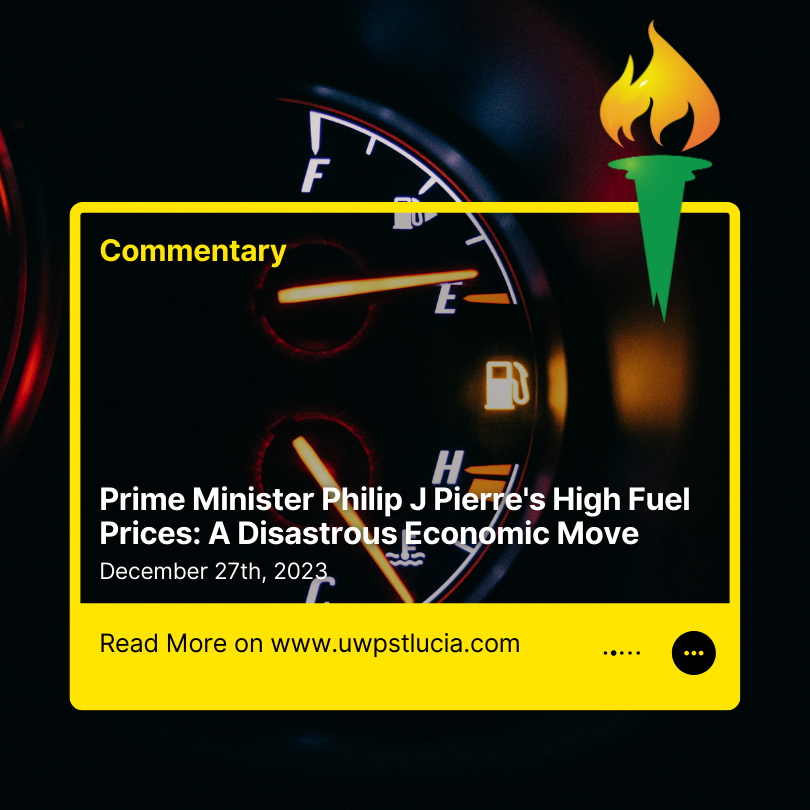Prime Minister Philip J Pierre’s decision to maintain high fuel prices in Saint Lucia, while neighboring islands like Dominica enjoy declining prices, has raised significant concerns among the populace. The disparity in fuel costs between these Caribbean nations is not only crippling the pockets of the Saint Lucian citizens but also putting the nation at a disadvantage in terms of economic growth and competitiveness.
One of the most glaring consequences of high fuel prices in Saint Lucia is the heavy burden it places on the ordinary citizens. As fuel prices continue to soar, the cost of living becomes increasingly unbearable for many Saint Lucians. Higher fuel prices lead to elevated transportation costs, which ripple through the entire economy, affecting the prices of goods and services. The working class and those on fixed incomes are the ones hit hardest by these inflated costs, causing financial strain and compromising their quality of life.
Saint Lucia’s economy heavily relies on tourism and agriculture, both of which are deeply affected by high fuel prices. The tourism industry, in particular, requires significant transportation and energy consumption, making it susceptible to the fluctuations in fuel costs. High fuel prices hinder the tourism sector’s competitiveness, deterring potential visitors who seek more affordable destinations in the Caribbean. This results in decreased revenue for the country, job losses, and stalled economic growth.
The agricultural sector in Saint Lucia also bears the brunt of elevated fuel prices. Farmers depend on fuel for transportation, irrigation, and operating machinery. When fuel prices are exorbitant, the cost of production surges, making it harder for farmers to compete in both domestic and international markets. As a result, the nation’s agricultural exports decline, hurting the livelihoods of countless farmers and exacerbating food security concerns.
High fuel prices directly impact the operational costs of businesses in Saint Lucia. Companies across various industries, such as manufacturing, logistics, and hospitality, experience an increase in overhead expenses due to high energy and transportation costs. This affects their competitiveness on a global scale, potentially driving away investors and stifling entrepreneurship within the country. With higher operational costs, businesses are less likely to expand, create jobs, or innovate, which hampers economic development.
It is imperative that the government reevaluates its fuel pricing policies to alleviate the hardships faced by the people and to foster a more conducive environment for economic development in Saint Lucia. Failure to do so will continue to have dire consequences for the nation’s prosperity and well-being.


Beneath Contempt: The Prime Minister’s Cynical Attempt To Buy Favour In The Wake Of Hurricane Beryl
By James Stanislaus “It is utterly appalling and reprehensible that Prime Minister Philip J. Pierre would prioritize political expediency over the welfare of the people of Soufriere, who have suffered devastating losses due to the ravages of Hurricane Beryl. His callous disregard for the plight of his constituents is a stark reminder of his administration’s tone-deafness to the needs of…
Read more
by Content Manager